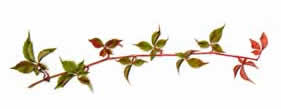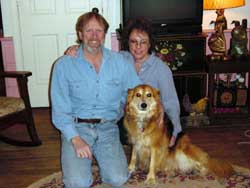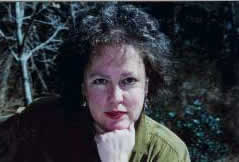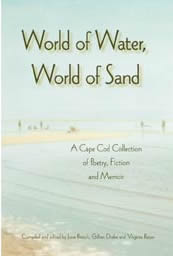

living with autism
Invisible
by Johanne Kieffer
I could feel the wet, warm liquid dripping down my hand. I instantly knew I was bleeding. He had a grip on me like a dog on a bone. His eyes were on fire, teeth gritted as he swiped the side of my face. Filled with fear and anger, I managed to appear outwardly calm. “Quiet hands!” I demanded.
I continued to check out my groceries as my autistic son had a meltdown in the supermarket. I managed to write a check, thank the cashier and direct my son to push the cart.
When we got just beyond the entrance doors he pushed the cart full force across the parking lot. Thank God there were no cars, or people in its path. He attacked me again, this time hitting me as I guarded my body with my hands. “Sit!” I demanded, adrenaline in full force. “You are all done!”
We were in a cold, dark parking lot. My five-foot-nine, 180 pound teenage son was assaulting me, and no one stopped to help. Passers-by just kept walking, like we didn’t exist.
I maneuvered my son into the car and finally sat with a sigh of relief. My heart was pounding so loud that I could hear it. What if he had bolted into the dark? What if he had seriously injured me? What if . . . ?
I took a deep breath to regroup. I started the car and continued home, as if nothing happened. We were invisible.
This is how we are treated by most people. This is how it feels to live with autism, invisible.

Crying
by Johanne Kieffer
“I still cry every time he goes back.” This mother’s seventeen-year-old autistic son had been living at a residential school for the past seven years. I felt confused. What she said didn’t make sense to me, even though I, too, have an autistic son. Hasn’t she gotten used to the visiting routine by now? After all, seven years, that’s a lot of coming and going! Perhaps she’s just too emotional, or too attached, I thought.
Now it is my turn. I survived the heart-wrenching decision to place my own son in a residential school at the age of fifteen. I survived what evolved into a year-long search for the right school to place him in, one that would accommodate his special needs. I survived the heart breaking “good-bye” on the day I left him there, knowing he couldn’t come home for the next thirty days. I survived handing over my vulnerable child to complete strangers, trusting, because I had no choice but to take this leap of faith.
I survived the feeling that I had been kicked in the chest, my heart aching with an emotion so deep that I thought I might not be able to live through it, or live with it. But I did, and I am, so why should she cry after seven years? Surely it should be routine, a piece of cake by now?
My son recently came home for his first visit from his new school. He was very excited and happy to be home. It was so wonderful to be near him, and yet it was strange at first. I could tell by the look in his eyes that he felt it too. It took a few minutes to adjust and mesh our energies back into family mode. To my surprise, I cried. I was overwhelmed with waves of emotion, uncontrollable tears of joy, tears of relief, tears of long suppressed grief. I cried and I understood. I, too, will probably cry for the next seven years.
It seems to me that our society doesn’t allow for this emotional expression. Crying is viewed as being weak. We expect people to “handle it,” “suck it up,” “get over it.” How sad for us. I recently watched a young American on television receive his first Olympic medal. He fought back the tears, his lip quivering as he struggled to maintain a smile, unable to allow one single tear to be shed. My heart went out to him. Was he able to fully experience this miraculous moment, which he had worked so hard for, all his life?
Crying, I believe, makes way for new energy, new possibilities, and maybe even healing.
Johanne Kieffer holds a Bachelor of Arts in Communications. She is a Licensed Massage Therapist and Reiki Master practicing in Eastham. She is also a freelance writer and resides with her two children on Cape Cod.
www.community-autism-resources.com
Send comments to: comments@capewomenonline.com
. . . . . . . . . . . . . . . . . . . . . . . . .
marriage and the test of time
The Path Along the Pines
By Saralee Perel

THOUGH THE FIRST THREE decades of our marriage were as smooth as cream, the last five years have been the most difficult . . . and the most important.
My husband, Bob, wrote this poem for me in 1977. We were on our honeymoon in Vermont, spending days climbing mountains and falling deeper in love:
I sit here by the fire,
warmed by more than crackling logs.
Perpetually-crossed legs hidden
by your long, flowing hair,
as you fall, doubled-over,
laughing at your own joke,
punch line undelivered,
I wait . . .
In mornings, too early
for the sun to be awake,
you shift and settle against me,
a drop of unfeminine drool on your lips,
I wait . . .
Dashing along fields of pines,
I glance behind through sparkling
diamonds of falling snow, and see you
hugging trees, in love with it all, as
I wait . . .
To tell you
of my love
for you.
Like the cycle of life in which tides ebb and flow, so it goes with relationships. Bob and I have had many receding waters ever since my disability began five years ago. But because of a stick, a pair of earphones and a field of pines, the tide has shifted for both of us.
One recent afternoon, I could hear Bob rummaging around in our backyard shed. After about an hour, he laughingly called out, “I found it!”
In one of the dark corners of the shed, he found a wooden walking stick he had hand-carved for me 26 years ago. It was brittle and dry from years of not being used nor cared for. So what did Bob do? Well, by polishing and re-polishing until its shine was as lovely and rich as it was in the beginning years of our marriage, he gave it new life.
Before he presented me with his re-creation, he handed me a card in which he had written:
“Sometimes, if we’re not aware, unused parts of our minds and bodies can wither, dry up and become sadly put away in a corner, waiting for us to miss them enough to seek them out and enjoy them again. When we discover them, bring them back to life and embrace them, we can then experience, once again, the joy they created for us in the past.”
Bob and I knew that his words had a lot more to do with “us” than they did with my precious walking stick. After he gave me the gift, I put my regular cane under the couch. The walking stick suits me, in many ways, much better.
And so yesterday I was exercising outside, while listening to a James Taylor CD. When I heard, “My Romance,” I reveled in the music and slow danced by myself. Suddenly I thought, “I’ve got to find Bob.” I faltered for a moment and then stood still. “What’s there to think about?” I said to myself. “Go!” I had learned from Bob when I’d heard him rummaging through our shed that recent afternoon that a single decision can change an entire life.
When I walk, I need support for balance. With the determination of an Olympian, I held on to tree after tree as I rushed into the house. Bob was at the computer. Without saying one word, I put the earphones on him and took his hand.
He held me while we danced.
My romance . . . doesn’t need to have a moon in the sky.
We swayed to the music.
No month of May. No shining star. No hideaway. No soft guitar.
Bob took one earphone off. “You listen too,” he said. I closed my eyes. He led me into a slow twirl as we both sang.
My romance doesn’t need a thing . . . but you.
Sometimes, wondrous things right in front of us take a long time to embrace and re-discover. With one set of earphones now belonging to two people, a dash along our backyard pines and a walking stick brought back to life, we have reclaimed our love at last.

CAPE COD CHAPTER
OF HOLISTIC MOMS NETWORK
The Holistic Moms Network is dedicated to supporting parents who are interested in natural health and mindful parenting. The Cape Cod chapter holds monthly meetings at the Chatham Community Center on a variety of topics, including healthy food for our families, holistic education, and holistic health care. These eetings provide an opportunity for members and guests to network and get to know each other better. The group will soon announce its roster of speakers for the coming year. The meetings are open to all.
The Chatham Community Center
is located at
702 Main Street in Chatham.
For more information, contact
Lauren at 973-919-1646 or Jenny Wood at jenny@capecodacupuncture.com
. . . . . . . . . . . . . . . . . . . . . . . . .
Good News in
Catastrophic Times!
We Are Hard-Wired to Care and Connect
“Scientists who use advanced imaging technology to study brain function report that the human brain is wired to reward caring, cooperation, and service. According to this research, merely thinking about another person experiencing harm triggers the same reaction in our brain as when a mother sees distress in her baby’s face. Conversely, the act of helping another triggers the brain’s pleasure center and benefits our health by boosting our immune system, reducing our heart rate, and preparing us to approach and soothe. Positive emotions like compassion produce similar benefits. By contrast, negative emotions suppress our immune system, increase heart rate, and prepare us to fight or flee.”
—David Korten
David Korten wrote this article as part of Purple America, the Fall 2008 issue of YES! Magazine. David is co-founder and board chair of YES! His latest book is "The Great Turning: From Empire to Earth Community." His website is www.davidkorten.org.
. . . . . . . . . . . . . . . . . . . . . .
In Memory of Marjorie Ould
Still Your Fingers Dare
The empty house echoes with your name
but without the sound of masterful commands
the sulky hearth no longer kindles flame.
Ivories lie silent; they want your hands.
No more the Chopin etude greets our day,
no more among your shards of memory;
and gone the crowning thrill you tucked away
the night that you performed for royalty.
I visit you, lacking hope, but longing to share
before we toll the bell of separation:
to kiss your cheek, to see your eyes light up,
briefly, with love, and to hum as your fingers dare
our favorite nocturne. Gallant, with mock elation,
we try to pretend we can make the losses up.
—Marjorie Ould
Marjorie Ould first came to the Cape in the 1950s, summering in Provincetown. She and her husband built a home in Truro in 1966 and retired there in 1980. Marjorie acted with the Provincetown Theater Company and with the Outer Cape Performance Company, and took writing classes with Alan Dugan, Keith Althaus, and Ding Watson at Truro Center for the Arts at Castle Hill. She moved to North Eastham, and lived there until she passed away this summer. This poem was written for her husband John, an accomplished pianist who had recently passed away.

This poem by Marjorie Ould was published in World of Water, World of Sand: A Cape Cod Collection of Poetry, Fiction and Memoir.
Available at your local Cape Cod book store or email
GillianHDrake@aol.com to order a copy.
$14.95 plus shipping
